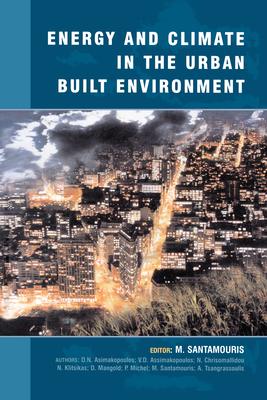Both the number and percentage of people living in urban areas is growing rapidly. Up to half of the world’s population is expected to be living in a city by the end of the century and there are over 170 cities in the world with populations over a million.
Cities have a huge impact on the local climate and require vast quantities of energy to keep them functioning. The urban environment in turn has a big impact on the performance and needs of buildings. The size, scale and mechanism of these interactions is poorly understood and strategies to mitigate them are rarely implemented.
This is the first comprehensive book to address these questions. It arises out of a programme of work (POLISTUDIES) carried out for the Save programme of the European Commission. Chapters describe not only the main problems encountered such as the heat island and canyon effects, but also a range of design solutions that can be adopted both to improve the energy performance and indoor air quality of individual buildings and to look at aspects of urban design that can reduce these climatic effects. The book concludes with some examples of innovative urban bioclimatic buildings.
The project was co-ordinated by Professor Mat Santamouris from the University of Athens who is also the editor of the book. Other contributions are from the University of Thessaloniki, Greece, ENTPE, Lyons, France and the University of Stuttgart, Germany.

 共
共 










